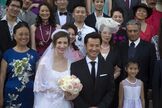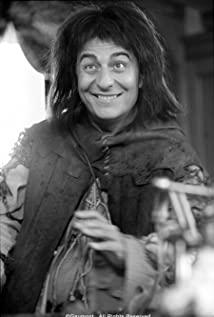The most interesting part of the film is that the fathers of the two families have a feeling of seeing each other late. Fishing by the lake, I originally wanted to argue for a superiority and cancel the marriage. But the two old men chatted and found many similarities. The scene where they fished out the big fish together was very harmonious. What's more exaggerated was that they also exchanged clothes. The two of them stumbled to the bakery. Instead, the African father said some discriminatory language, no wonder the bread The shopkeepers will be amazed. The sons and daughters here are still worried that the two fathers will fight to the death, while the two old men over there entered the police station "hand in hand" for disturbing the order. It still looks very harmonious.
The film is still full of romantic idealism, although there are ups and downs and contradictions, but finally a happy ending. Although there are issues such as ethnicity and religion, we still seek common ground while reserving differences and work together. The daughters will persuade their husbands separately before the party, and the husbands will also "smooth the edges and corners" to accept this harmless ridicule. Mother specially prepared 3 ways to do it for Christmas. And some coincidences are also arranged in the play. For example, the passage of the Bible that Charles' mother wants to recite at the wedding is exactly the passage that Luoer's mother likes the most, and the two fathers are actually supporters of the de Gaulle school. This is a good foundation for the 4 daughters to finally have a lover and get married.
If such a thing happened in reality, I don’t know if it would be as lighthearted and humorous as the film. Maybe this theme is just an idealized interpretation of the film, but for the audience, it is lighthearted and humorous, and religion can be seen from the film. , racial, cultural conflict is enough.
View more about Serial (Bad) Weddings reviews











